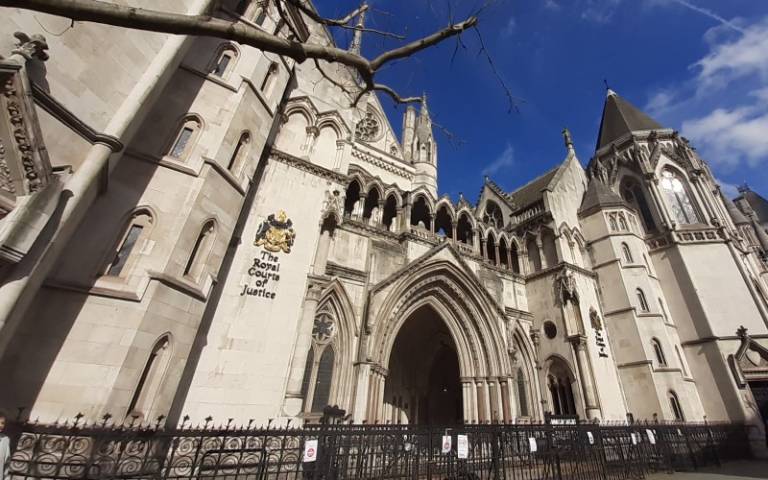New report reveals how lawyers’ conduct can either support or undermine the rule of law
30 November 2023
The LSB report, written by Professor Steven Vaughan, Kenta Tsuda (UCL Laws) and Professor Richard Moorhead (University of Exeter), concludes that proportionate regulation can play a role in supporting the rule of law and responding to lawyers’ unethical conduct.

‘What does it mean for lawyers to uphold the rule of law?’, commissioned and published by the Legal Services Board, explores the professional commitment of lawyers to uphold the rule of law, including promoting respect for the law, counselling clients towards legality and helping resolve disputes in the interests of justice.
Challenges to a commitment to the rule of law, including challenges from lawyers acting contrary to the rule of law, bring significant social and economic risks. Various examples across the globe are calling into question the place of lawyers in society and their commitment to the rule of law: lawyers as ‘professional enablers’ of corruption and corrupt officials; lawyers as mouthpieces for sexual abusers (though Non-Disclosure Agreements and other mechanisms); lawyers shoring up the dubious practices of oligarchs and other powerful clients; and lawyers supporting and advancing populist authorities and politicians who seek to reduce the rights of their citizens.
For the first time, the report authors detail and explore specific elements of a legal and professional commitment to uphold the rule of law, including client facing and society facing aspects. These elements include the idea that lawyers are a central part of the social system through which the rule of law is respected and law habitually attended to. The report shows how lawyers help to challenge inappropriate and arbitrary uses of power, by the state and also by others; supporting citizens with their legal rights and protecting them from state and other coercion. It also reveals how lawyers are agents of rule of law systems not just because they advise clients on their rights, but because they counsel their clients towards legality. The report details how actions that impede access to justice and the just resolution of disputes are inconsistent with lawyers’ rule of law related duties, and argue that the role for the lawyer as an agent of the rule of law is at least as strong beyond court-based dispute resolution. The report urges scepticism of claims that the rule of law demands any particular response to a regulatory issue or that it ascribes to lawyers freedom from restraint or scrutiny. A lawyer’s behaviour is not necessarily consistent with the rule of law merely because a superficial claim can be made that they are exercising a right for a client.
How specific lawyer action might challenge lawyers’ rule of law obligations is also outlined. These are situations where professional judgement, applied independently and with integrity, is required; and sometimes appears not to have been present in the examples discussed in the report. These examples show how reconciling the discretion exercised in lawyerly work with duties to the rule of law can be profoundly important to the health of our legal system and the lives influenced by law. The cases discussed in the report demonstrate how the rule of law implications of legal professional work and ethics can be seen in various legal contexts and in relation to a range of sometimes problematic lawyer behaviours. Furthermore, the examples show that rule of law arguments often require a balancing between a lawyer’s public facing obligations (to courts, administration of justice, and wider public interest) and their more private facing obligations to their clients.
Professor Vaughan, Professor of Law and Professional Ethics at UCL Laws, commented:
“While there is general agreement that lawyers are important to the rule of law, what it actually means for practising lawyers to uphold their professional and legal commitments to support the rule of law has been under explored, till now. We hope this report will act as a reference point for the legal services regulators when they think about how to give life to their rule of law obligations under the Legal Services Act 2007, and also for practising lawyers and representative groups who want and need to better articulate the importance of lawyers to society and to the rule of law.”
Kenta Tsuda, doctoral student at UCL Laws, added:
“We also hope that the Report will allow lawyers to make sense of what is an ongoing conceptual debate about the rule of law as applied to the maelstrom of legal practice.”
 Close
Close

